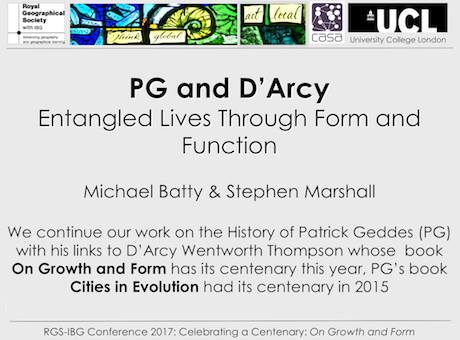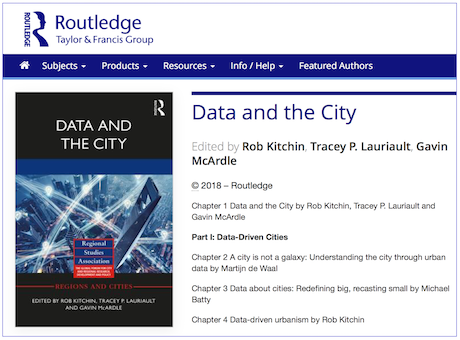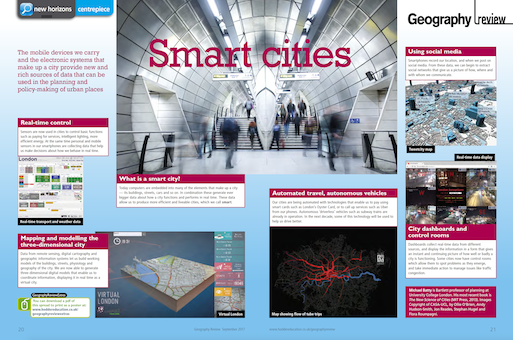Below you can read the abstract of the chapter, see some of the figures we used to support our discussion, along with the full reference and a
pdf proof of the chapter. As always any thoughts or comments are welcome.
Abstract:
Big Data (BD) offers researchers the scope to simulate population behavior through vastly more powerful Agent Based Models (ABMs), presenting exciting opportunities in the design and appraisal of policies and plans. Agent-based simulations capture system richness by representing micro-level agent choices and their dynamic interactions. They aid analysis of the processes which drive emergent population level phenomena, their change in the future, and their response to interventions. The potential of ABMs has led to a major increase in applications, yet models are limited in that the individual-level data required for robust, reliable calibration are often only available in aggregate form. New (‘big’) sources of data offer a wealth of information about the behavior (e.g. movements, actions, decisions) of individuals. By building ABMs with BD, it is possible to simulate society across many application areas, providing insight into the behavior, interactions, and wider social processes that drive urban systems. This chapter will discuss, in context of urban simulation, how BD can unlock the potential of ABMs, and how ABMs can leverage real value from BD. In particular, we will focus on how BD can improve an agent’s abstract behavioral representation and suggest how combining these approaches can both reveal new insights into urban simulation, and also address some of the most pressing issues in agent-based modeling; particularly those of calibration and validation.
Keywords: Agent-based models, Big Data, Emergence, Cities.
 |
| The growth in Agent-based modeling -from search results of Web of Science and Google Scholar. |
 |
| Hotspots of activity of Tweeter Users: Tweet locations and associated densities for a selection of prolific users. |
Full Reference:
Crooks, A.T., Malleson, N., Wise, S. and Heppenstall, A. (2018), Big Data, Agents and the City, in Schintler, L.A. and Chen, Z. (eds.), Big Data for Urban and Regional Science, Routledge, New York, NY, pp. 204-213. (pdf)
Continue reading »

![]()


 I hope more people (>2) see this post than actually attended the four lectures celebrating the contribution of D’Arcy Wentworth Thompson at this year’s RGS-IBG conference last Thursday when we presented. But such is the state of the world and …
I hope more people (>2) see this post than actually attended the four lectures celebrating the contribution of D’Arcy Wentworth Thompson at this year’s RGS-IBG conference last Thursday when we presented. But such is the state of the world and … 
 A new book on data and big data in the city edited by Rob Kitchin, Tracey P. Lauriault, Gavin McArdle from Routledge. Lot of very interesting material here on the data revolution in cities. Smart cities concepts are explained and critiqued …
A new book on data and big data in the city edited by Rob Kitchin, Tracey P. Lauriault, Gavin McArdle from Routledge. Lot of very interesting material here on the data revolution in cities. Smart cities concepts are explained and critiqued …  Geography Review is a brand new magazine for sixth formers (grade 12-13 in the US) studying any subject but particularly those who are interested in geography. In the UK geography is one of the top subjects in high school and …
Geography Review is a brand new magazine for sixth formers (grade 12-13 in the US) studying any subject but particularly those who are interested in geography. In the UK geography is one of the top subjects in high school and … 










